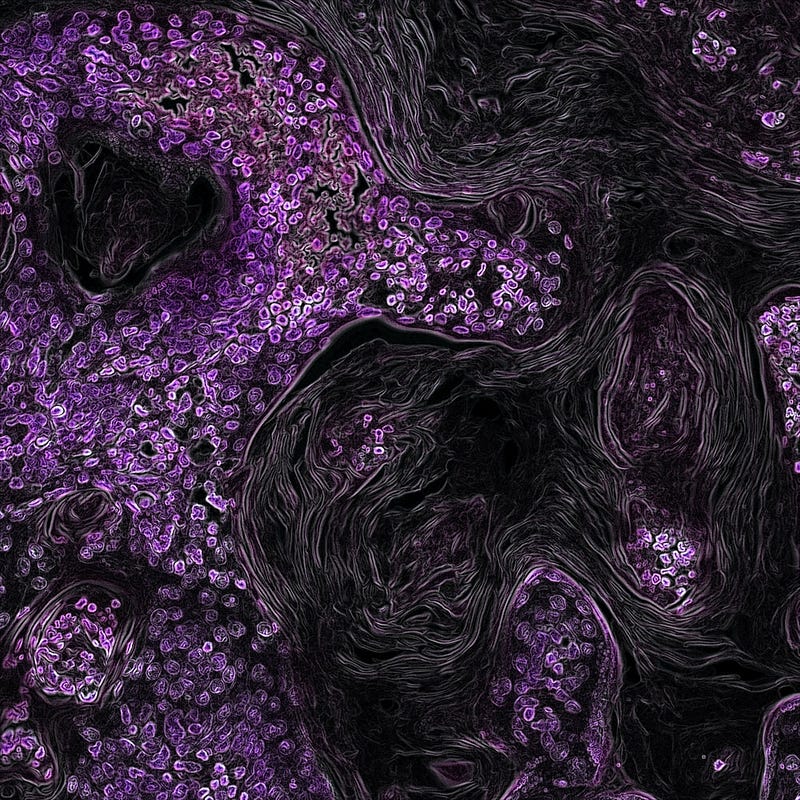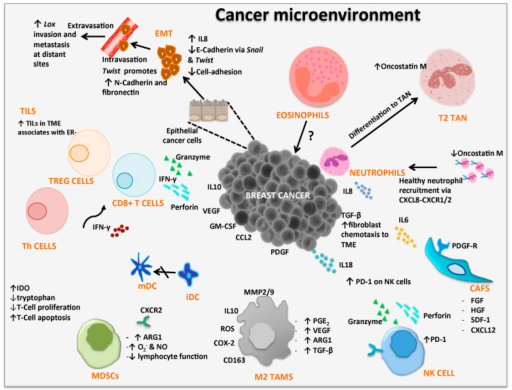Understanding Cancer Through Ecological Principles: A New Perspective
Written on
Chapter 1: The Intersection of Ecology and Cancer
Can ecological concepts help us comprehend and potentially address cancer?

Cells out of control
When a cell rebels against the standard rules of growth and begins to divide uncontrollably, it is labeled cancerous. Such erratic cells rank as the second leading cause of mortality worldwide.
(For a fictional depiction of a cancer cell's life, consider reading my free story "Divide and Conquer.")
What prompts this cellular rebellion? The answer lies in mutations. These alterations occur because our DNA replication process isn’t infallible. Each cell division carries the risk of an 'error' or mutation, although not all mutations are detrimental.
External factors can also induce mutations. For instance, there’s a well-documented connection between excessive UV exposure (from intense sunlight or tanning beds) and an elevated risk of skin cancer. Similarly, environmental pollutants and processed meats are associated with increased risks of lung and colorectal cancers, respectively.
Nevertheless, age remains the primary risk factor. As time passes, we accumulate mutations, and older blood can harbor substances that facilitate cancer's spread once it emerges.
Additionally, the gut microbiome plays a significant role in cancer susceptibility and could potentially enhance chemotherapy outcomes. Current cancer treatments often involve a broad approach: damaging all cells in hopes that the cancerous ones are more vulnerable. Fortunately, newer therapies are becoming more targeted, such as immunotherapy, which trains a patient’s immune cells to recognize and attack cancer cells.
However, achieving true victory in the battle against cancer necessitates a comprehensive understanding of the disease. From genetics to machine learning and physics, a multidisciplinary strategy is essential for effective treatment or potential cures.
Bringing Ecology into Cancer Research
Recent research delves into the similarities between cancer cell populations and wild animal populations, illustrating how both are influenced by their environments to develop critical traits necessary for survival and reproductive success.
The study emphasizes that cancer cells exist as a unique population within the ecosystem of surrounding cells and tissues in our bodies. To thrive and reproduce, cancer cells must engage with their environment and evolve strategies to overcome challenges, like evading the immune system.
Successful cancer cells are adept at adapting to selective pressures. They evolve to seek out nutrients, evade immune detection, migrate to more favorable locations, and reproduce—much like a group of animals.
Another significant analogy drawn in the research is that of niche construction. This concept suggests that organisms not only adapt to their environment but also modify it. A well-known example is a beaver building a dam.

Tumor cells engage in similar behaviors. In a previous article, I discussed how tumors create their own micro-environments by altering tissue properties, such as stiffness and fluid pressure.
Why explore these parallels between cancer and ecology? Is it merely an intellectual exercise?
Not at all. When we attempt to treat cancer, we alter the environment and the selective pressures affecting cancer cells. However, these cells do not simply succumb; they adapt. By understanding their responses and the ecological principles that govern them, we can devise more effective treatments and prevent recurrences.
For instance, adaptive therapy involves modifying treatment regimens based on the varying resilience of resistant and sensitive cell populations, which has shown to significantly extend tumor control in preclinical models of breast and ovarian cancers.
This approach aligns with the evolving concept of adaptive therapy, recognizing that cancer cell populations are dynamic. Treatments should likewise be adaptable and personalized.
Moreover, increasing research is focusing on the tumor micro-environment as a therapeutic target. Instead of solely attacking cancer cells, we could deprive them of resources, bolster immune cell activity through immunotherapy, or alter the tumor's surrounding tissue to inhibit cancer cell infiltration.
The author concludes that integrating these innovative technologies with ecology-informed cancer models could improve our ability to manage cancer as a chronic, controllable condition, significantly enhancing the longevity of patients.
Humans excel at pushing species toward extinction. Perhaps it’s time we apply the same principles to cancer.
Chapter 2: Insights from Cancer Ecology
The video "Ecology Meets Cancer Biology" elaborates on how ecological principles can inform cancer research, offering new insights into the behavior of cancer cells.
The video "Does the Ecology of Somatic Tissue Normally Constrain the Evolution of Cancer?" examines the impact of somatic tissue ecology on cancer's evolution and treatment strategies.